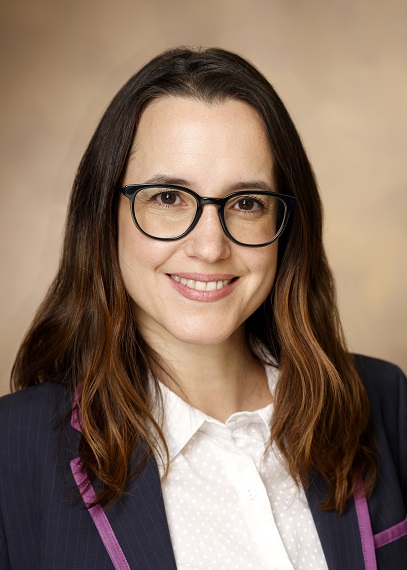
Paula Gonzalez Ericsson, M.D.
- Senior Staff Scientist
Paula Gonzalez Ericsson, M.D.
- Senior Staff Scientist
(615)343-7993
paula.i.gonzalez.ericsson@vumc.org
220 Pierce Ave.
Nashville, TN 37232
Nashville, TN 37232
Research Program
This phase II trial studies how well talazoparib works for the treatment of breast cancer with a BRCA 1 or BRCA 2 gene mutation that has spread to other places in the body (metastatic). Talazoparib is a study drug that inhibits (stops) the normal activity of certain proteins called poly (ADP-ribose) polymerases also called PARPs. PARPs are proteins that help repair deoxyribonucleic acid (DNA) mutations. PARP inhibitors, such as talazoparib, can keep PARP from working, so tumor cells can't repair themselves, and they may stop growing. PARPs are needed to repair mistakes that can happen in DNA when cells divide. If the mistakes are not repaired, the defective cell will usually die and be replaced. Cells with mistakes in their DNA that do not die can become tumor cells. Tumor cells may be killed by a study drug, like talazoparib, that stops the normal activity of PARPs. Talazoparib may be effective in the treatment of metastatic breast cancer with BRCA1 or BRCA2 mutations.
Research identifies new target that may prevent blood cancer
An international coalition of biomedical researchers co-led by Vanderbilts Alexander Bick MD PhD has determined a new way to measure the growth rate of precancerous clones of blood stem cells that one day could help doctors lower their patients risk of blood cancer.
This phase III trial compares the effect of radiation therapy combined with hormonal therapy versus hormonal therapy alone in treating patients with low risk, early stage breast cancer with Oncotype Dx Recurrence = 18. Oncotype DX is a laboratory test which results in a score that is used to help predict whether breast cancer will spread to other parts of the body or come back. Radiation therapy uses high doses of radiation to kill cancer cells and shrink tumors but may result in some side effects. Hormones called estrogen and progesterone may contribute to the growth of breast tumor cells. Hormone therapy, also called endocrine therapy, may stop the growth of tumor cells by blocking or removing these hormones. This clinical trial may help researchers understand if patients with low-risk, early stage breast cancer who have Oncotype recurrence score of = 18 can safely omit radiation therapy and only be treated with hormonal therapy without losing any radiation treatment benefit.
This phase I trial evaluates the usefulness of an imaging agent (zirconium Zr 89 panitumumab [89Zr panitumumab]) with positron emission tomography (PET)/computed tomography (CT) for diagnosing primary tumors and/or the spread of disease from where it first started (primary site) to other places in the body (metastasis) in patients with head and neck squamous cell carcinoma. 89Zr panitumumab is an investigational imaging agent that contains a small amount of radiation, which makes it visible on PET scans. PET is an established imaging technique that utilizes small amounts of radioactivity attached to very minimal amounts of tracer, in the case of this research, 89Zr panitumumab, to allow imaging of the function of different cells and organs in the body. CT utilizes x-rays that traverse the body from the outside. CT images provide an exact outline of organs and potential disease tissue where it occurs in patients body. The combined PET/CT scanner is a special type of scanner that allows imaging of both structure (CT) and function (PET) following the injection of 89Zr panitumumab. This 89Zr panitumumab PET/CT may be useful in diagnosis of primary tumors and/or metastasis in patients with head and neck squamous cell carcinoma.


